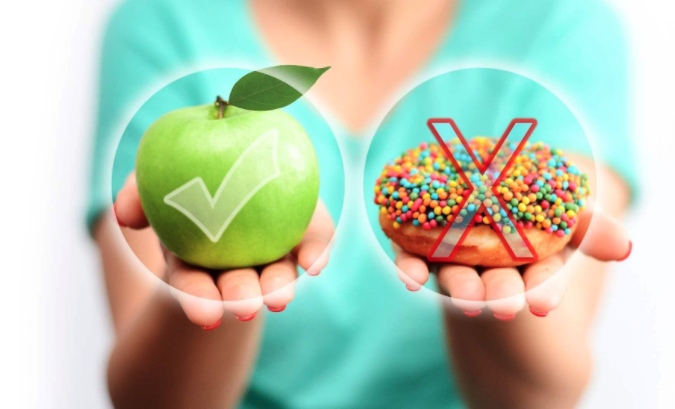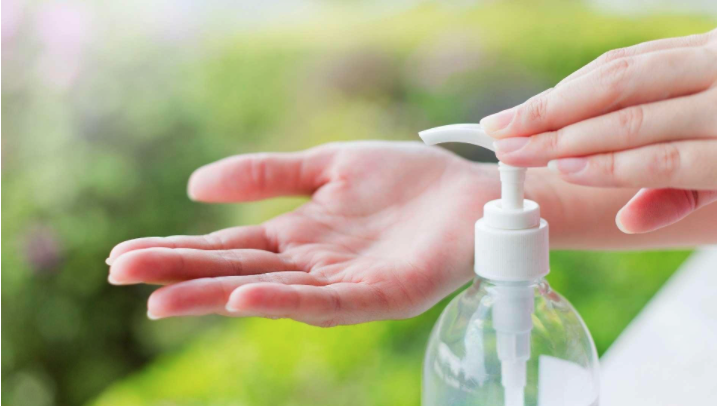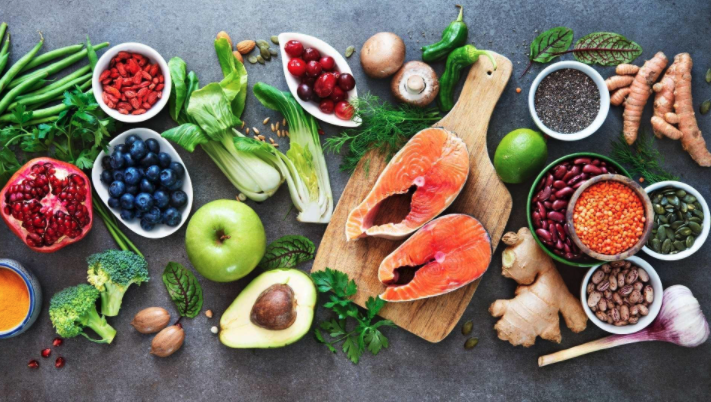The immune system is a complicated system of cells, processes, and substances that constantly protects your body from diseases such as viruses, poisons, and bacteria.
The immune system protects you from harmful threats on the inside and outside, but it can’t when it fails and that’s when we get sick. The immune system is a big deal, in the body! It’s the moat around the castle, the firewall surrounding the network; it’s involved in every single bodily systems maintenance.
It is very important to ensure your immune system is healthy year round to avoid infection and sickness.
The best way to strengthen your immune system is to make healthy lifestyle choices such as eating nutritious foods, going to the gym, taking a walk and getting adequate sleep.
Supplementing with specific vitamins, minerals, herbs, and other substances has also been found to enhance immune response and possibly protect against illness, according to research.
However, some supplements may interact with the prescriptions you’re taking, whether they’re prescription or over-the-counter. Some of them may not be suitable for those with specific medical issues. Before beginning any supplement regimen, consult with a healthcare expert.
At eCenter Wellness in Boca Raton, Florida, we specialize in Immune System Resilience. For those who want to prioritize strengthening their immune system, we have an incredible program for better immunity. For now, here are our six steps to stay virus free, let’s boost the immune system with food!
Six Steps to Staying Virus Free
- Take a multivitamin. You want to think about the overall health of the body. Vitamin C, D, & E are all found in the multivitamin capsule and help boost the immune system. Vitamin C, and E contain antioxidants that aid to alleviate allergic symptoms.
Something as simple as taking your daily multivitamin can help prevent you from falling victim to a virus like the flu or COVID-19.
- More Protein. According to research, eating protein, particularly whey protein, can help improve the immune system and ward against infections.
To avoid a hostile viral takeover, as well as to create healthy mucosal barriers and powerful immune cells, especially in the Nose, Throat, Eyes, and Lungs, you must consume enough protein.
Protein is an important resource for boosting immunity since it aids in the formation of immune system cells. When trying to boost the immune system with food, adding more protein to your diet is a simple way to do it.

- Avoid all high carb foods and sugar, including excessive fruit/fruit juice (yes, sugar paralyzes your immune system for up to 4-5 hours!)
The majority of individuals are aware that sugar has bad health repercussions, such as obesity and diabetes. Most people, however, are unaware that it also has an impact on our immune system. Sugar has a significant impact on immunological function, which is reduced for several hours after consumption.
After 1-2 hours of eating sugar, the efficacy of white blood cells (our immune cells that fight infection) fell by up to 50%, lasting up to five hours, according to a Loma Linda University study in which participants were fed several types of sugar.
It’s interesting that many individuals are utilizing quarantine time to bake at a time when we should be avoiding sugar. While I recognize that this is a comfort tool for many, the additional stress it places on your immune systems is simply not worth it.
- Take Vitamin D. Consider the rise in colds and flu throughout the winter due to a lack of sunlight, as well as the prevention of immune system inadequacies.
Vitamin D is a fat-soluble vitamin that is essential for the health and function of the immune system.
Vitamin D helps the body fight off pathogens of monocytes and macrophages — white blood cells that play a key role in immune protection — and reduces inflammation, which aids immunological response.
Many people are vitamin D deficient, which can have a negative impact on immunological function. Vitamin D deficiency has been linked to an increased risk of upper respiratory tract infections, such as influenza and allergic asthma.
Vitamin D supplementation has been shown in several trials to improve immunological response. Recent study suggests that consuming this vitamin can help prevent you from respiratory infections.
Supplementing with vitamin D significantly reduced the incidence of respiratory infections in those lacking in this vitamin and lowered infection risk in those with adequate vitamin D levels, according to a 2019 analysis of randomized control studies involving 11,321 people.
This indicates a significant protective impact.
Vitamin D supplements, according to other research, may increase antiviral therapy response in persons with specific diseases, such as hepatitis C and HIV.
Most people can get by with 1,000 to 4,000 IU of supplemental vitamin D per day, depending on their blood levels, however those with more serious deficiencies may need considerably larger doses.
Vitamin D has been extensively studied in relation to COVID-19, because of its effect on the immune system. Vitamin D has been demonstrated in studies to speed up healing and reduce inflammation in the respiratory system.
According to a recent review study, further research is needed before Vitamin D supplementation can be recommended for the prevention and treatment of COVID-19.
On the other hand, many health and science experts claim that supplementing with Vitamin D is normally safe and may even help protect people against the illness.
- Take Zinc. (Only with a multivitamin) Zinc stops inflammation and virus replication and strengthens mucosal barriers. Zinc is a mineral that’s typically included in immune-boosting supplements and other healthcare goods like lozenges. This stems from the fact that zinc is required for optimal immune function.
Zinc is essential for immune cell growth and communication, as well as for the inflammatory response. Zinc also helps to defend the body’s tissue barriers and prevent external germs from entering.
A vitamin deficiency has a substantial impact on your immune system’s ability to function as designed. This deficiency increases the risk of infection and disease, including pneumonia.
Around 2 billion people worldwide suffer from zinc insufficiency, which is particularly prevalent among the elderly. In fact, up to 30% of older persons are thought to be low in this vitamin.
Despite this, many people in the United States have a minor zinc shortage due to inadequate ingestion or absorption. Typically, older people are at a higher risk to experience a zinc deficiency.
Zinc supplements have been shown in numerous trials to protect against respiratory infections such as the common cold.
Zinc supplementation may also be beneficial for persons who are currently suffering.
Research conducted in 2019 had 50+ hospitalized children with acute lower respiratory tract infections (ALRIs), consuming 30 mg of zinc per day for two days reduced the total length of infection and hospital stay by an average of two days when compared to a placebo group.
- Take Vitamin A. Vitamin A is good for general lung health because it strengthens lung membranes.
Similar to an oil change on a car, Vitamin A is essential to maintain the body’s natural defenses.
This includes the mucous barriers that help trap germs and other infectious agents in your eyes, lungs, gut, and genitals.
It also has a role in the formation and function of white blood cells, which are responsible for capturing and removing germs and other pathogens from the bloodstream.
This means that a vitamin A deficiency can make you more susceptible to infections and cause you to take longer to recover when you’re sick.
Correcting vitamin A deficiency in children has been demonstrated to reduce the chance of dying from infections like measles and malaria in regions where these diseases are common.
Other Natural Ways To Fight Against Virus:
Get Over Eight Hours of Sleep

Immune response can be damaged by poor sleep quality; nevertheless, a good night’s sleep can boost immunity. T helper cells perform better when they have a good night’s sleep. As part of the body’s defense system, T helper cells attack invading bacteria, viruses, or any foreign antigen cells.
Our immune cells sense foreign pathogens and release a protein called integrin when they enter the body. Integrin aids T cells in binding to foreign antigens and eventually destroying them.
Hormones including adrenaline and noradrenaline, as well as pro-inflammatory chemicals like prostaglandins, were discovered to prevent T cells from connecting with integrins. During sleep, the levels of these stress hormones (adrenaline, noradrenaline) and prostaglandins drop. As a result, getting enough sleep promotes T cell efficiency and the body’s immunological response.
The advantages of getting enough sleep have long been known. A good night’s sleep needs to be a top priority for everyone. Sleep hygiene, such as sleeping in a comfortable and dark, cool atmosphere and avoiding technology use at night, can help you get a good night’s sleep. Sleep quality can also be improved by exercising regularly and avoiding alcohol and caffeine.
Clean Your Air & Environment
Many people can take actions to clean and disinfect the air in their homes. According to several studies, the air we breathe inside our homes is more harmful than the air we breathe outside. As people self-quarantine or avoid crowds, it’s crucial to evaluate how hazardous your indoor air is.
The Coronavirus has yet to be tested against air purification systems because it’s so new, although systems have been tested against other viruses including H1N1, MERS, and MRSA. According to certain research, viruses and bacteria are reduced by more than 85 percent.
Another alternative for providing additional safety to your loved ones is to use an air purifier.
Warnings and Precautions with Hand Sanitizers

Since the beginning of COVID, people are constantly sanitizing and using hand sanitizer. Hand sanitizers haven’t been demonstrated to be more effective than hand washing numerous times a day. Do not excessively use hand sanitizer. Many hospitals and medical experts agree that washing your hands with soap and warm water for 30 seconds is ideal unless you frequently visit a hospital.
No need to get overwhelmed!!!
Simply pick at least the 3 easiest things to do over the next 2 weeks.
For additional immune help, eCenter Wellness in Boca Raton, Florida has a fantastic immunization program to help patients build stronger immune systems. To join this program give eCenter Wellness a call at (561) 381-9555. Visit an eCenter Wellness location in Beverly Hills, CA or Boca Raton, FL.

